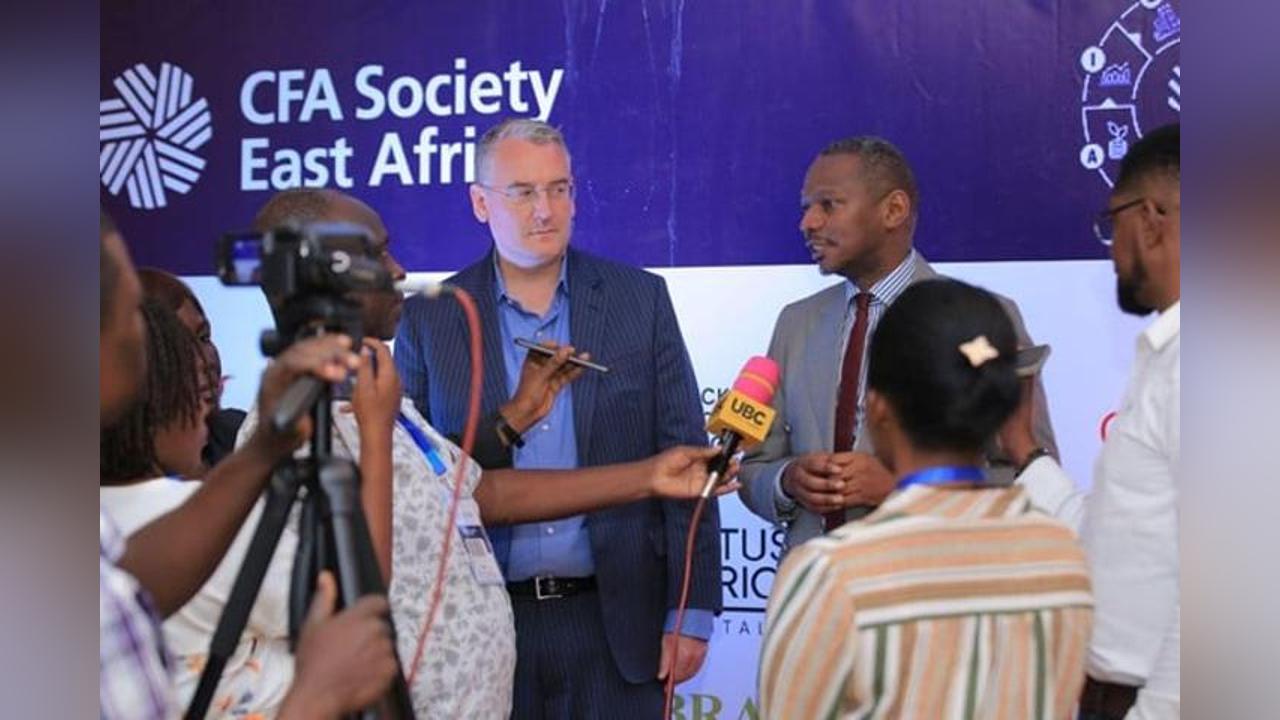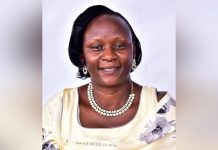Africa-Press – Uganda. Uganda’s financial sector converged at the Sheraton Kampala Hotel yesterday for what is being hailed as a milestone event in the evolution of African finance: the third Alternative Investment Conference (AIC2025), hosted by CFA Society East Africa.
Now in its third year, the conference has grown from a niche dialogue among investment professionals into a dynamic continental forum for bold ideas, market reforms, and forward-thinking capital strategies.
This year’s theme, “Enhancing Investment Readiness,” set the tone for an agenda that reflected both urgency and opportunity. Over 300 delegates gathered to explore how alternative capital—once considered peripheral—is fast becoming central to Africa’s financial future.
CFA Society East Africa President Francis Nasyomba, CFA, declared that “alternatives are no longer alternative—they are essential.”
It was a statement that reverberated throughout the day, as thought leaders across the public and private sectors echoed the need to activate untapped domestic capital and reimagine how growth is financed across the region.
The Director of Economic Affairs, Ministry of Finance, Moses Kaggwa who represented the Permanent Secretary reiterated government’s commitment to building a robust private sector, powered by innovative capital frameworks that channel investment into priority sectors such as agro-industrialization, oil and gas, tourism, technology, and infrastructure.
He detailed the government’s 10-Fold Growth Strategy, a vision aimed at scaling Uganda’s economy from shs53 trillion to shs500 trillion by 2040.
Key to this growth, he said, is strategic investment in what he called the “ATMs”—Agro-processing, Tourism, Mineral Extraction, and Science, Technology & Innovation (STI).
Kaggwa also pointed to stable macroeconomic indicators: GDP growth projections above 7%, inflation below 4%, and an appreciating currency, all signaling readiness for capital inflows.
At the regulatory level, the Capital Markets Authority (CMA) underscored its intention to play an enabling role.
CMA Uganda’s Communications and Public Relations Manager, Lyn Tukei, highlighted a wave of new and upcoming reforms, including the introduction of a licensing regime for private equity and venture capital funds, updates to Limited Partnership Regulations, and ESG disclosure requirements designed to mainstream sustainability in investment practices.
“This is no longer an ‘alternative’ space,” she said. “It’s the future of capital markets. Regulation must be enabling, adaptive, and forward-looking.”
Among the day’s most compelling presentations was one by Kenneth Owera, CFA, Acting Chief Investment Officer at NSSF Uganda.
With shs26 trillion under management, the National Social Security Fund is one of Uganda’s largest institutional investors—and Owera made it clear that its investment strategy is shifting from passive security to active nation-building.
Through initiatives such as the Hi-Innovator Program, supported by the Mastercard Foundation, NSSF has helped over 500 small and growing businesses, trained 75,000 entrepreneurs, and created more than 30,000 jobs.
“When social security funds invest with purpose,” he said, “they don’t just secure retirements—they secure the nation’s future.”
The conference also brought sharp focus to the “missing middle”—the growing number of small and medium-sized enterprises, climate-tech startups, and women-led businesses that remain underserved by traditional finance.
Speakers called for creative fund structures that can reach smaller enterprises, policy tools to de-risk private investment, and a mindset shift from caution to bold capital deployment.
From a global vantage point, speakers from the CFA Institute shared key insights from new research and curriculum updates.
Rob Langrick, CFA, and Olivier Fines, CFA, presented findings from the “Investment Case for Private Markets” report, reinforcing that global capital is paying attention—but will only engage in markets that demonstrate transparency, trust, and readiness.
Langrick also announced enhancements to the CFA Program curriculum, including greater emphasis on practical skills in private markets and alternative investments, reflecting the evolving competencies demanded by modern finance professionals.
What set AIC2025 apart was not just the expertise in the room, but the collective willingness to challenge old assumptions.
Several speakers reminded delegates that Africa cannot rely on donor grants or external borrowing to fund its development agenda.
“We must mobilize and deploy our own capital with purpose,” one remarked. “If we don’t, someone else will—and we’ll lease our future at a loss.”
Even an afternoon rain shower failed to dampen the conference’s momentum.
Delegates remained engaged, conversations intensified, and the sense of shared responsibility deepened.
For More News And Analysis About Uganda Follow Africa-Press






